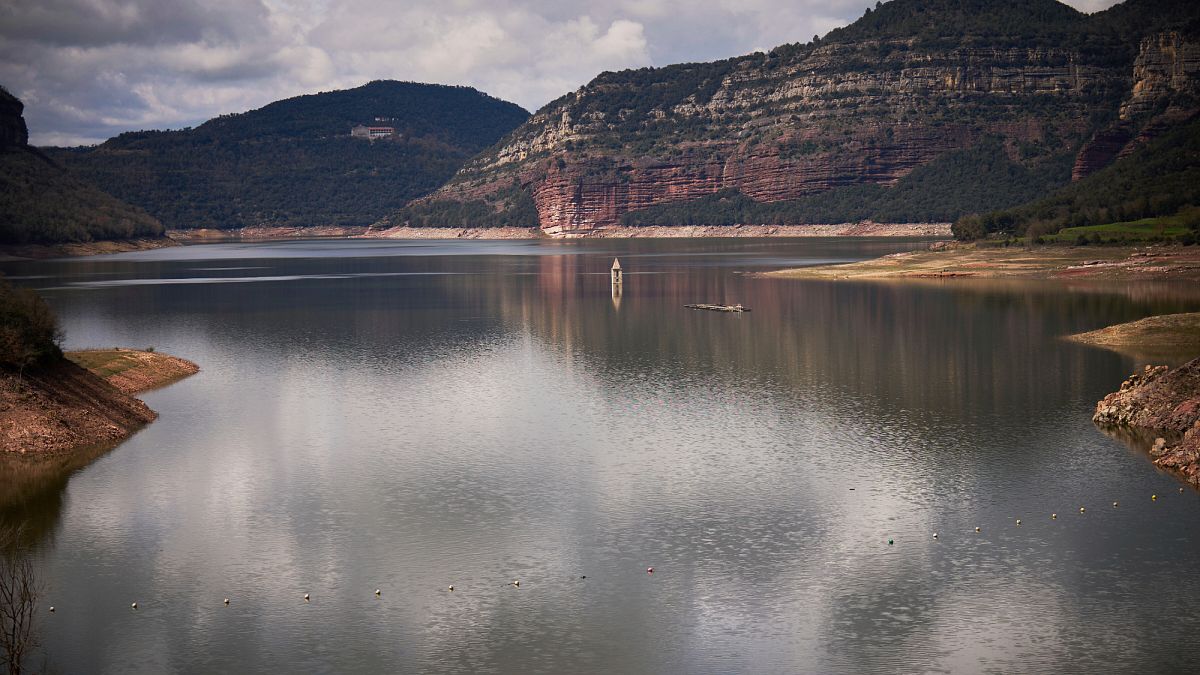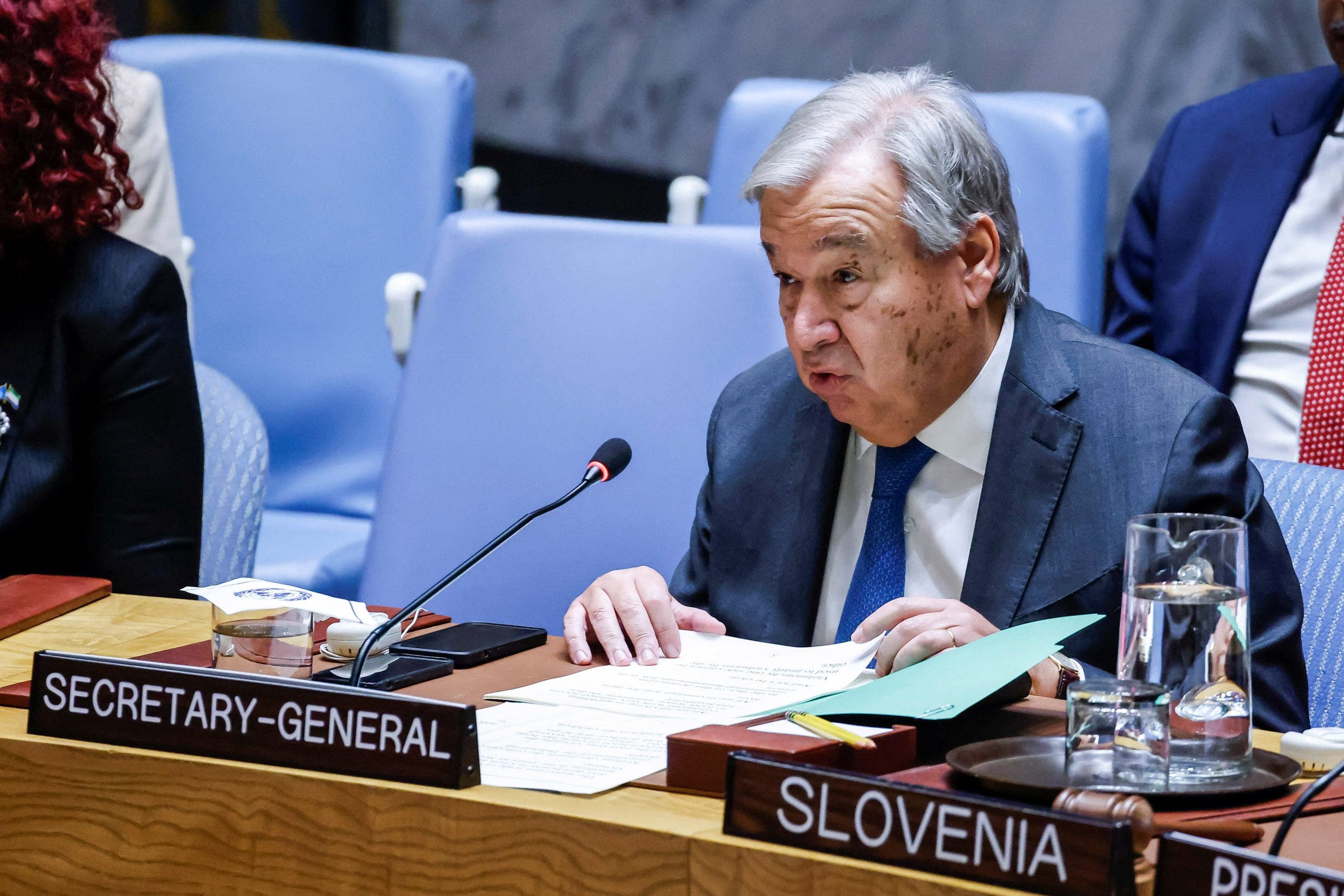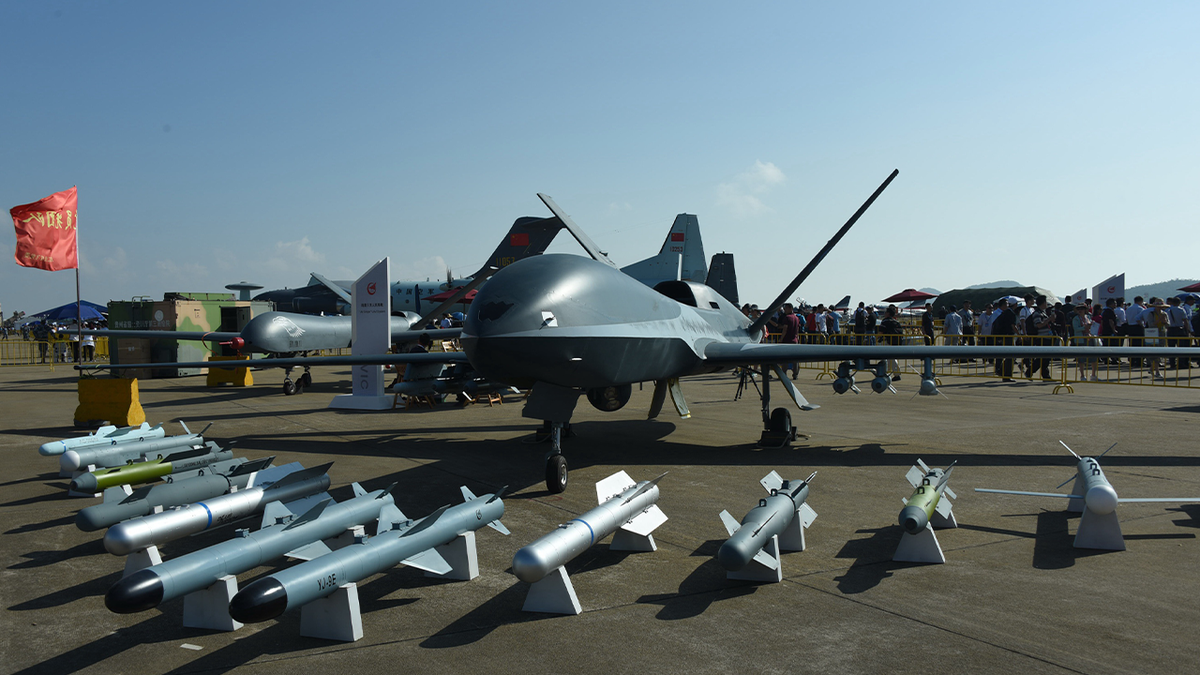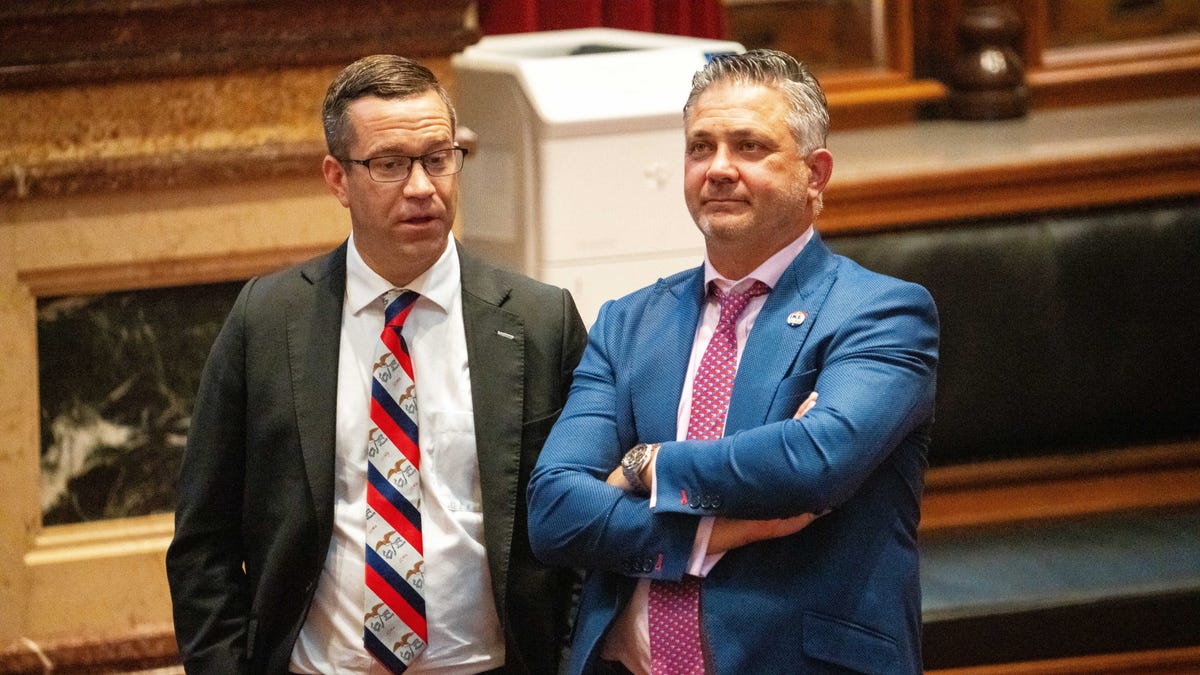World
Imran Khan’s ‘life under threat’ in jail, says Pakistan ex-PM’s party

Khan was arrested and sent to jail for three years following his conviction in a corruption case by a court in Islamabad.
Islamabad, Pakistan – Jailed former Pakistani Prime Minister Imran Khan’s party says it is concerned about his safety and security in prison, where “his life is under threat”.
Khan, 70, was arrested and sent to jail for three years following his conviction in a corruption case by a court in capital Islamabad on Saturday.
Shah Mehmood Qureshi, vice chairman of Khan’s Pakistan Tehreek-e-Insaf (PTI) party, told Al Jazeera the former prime minister is not being allowed to meet his lawyers for the last two days.
He said the party leadership is “extremely concerned” about Khan’s wellbeing.
“Our priority is Khan’s safety and security. We have reasons to believe his life is under threat and I urge the country’s higher courts to take notice and we do hope that justice will prevail,” Qureshi, also a former foreign minister of Pakistan, told Al Jazeera.
Qureshi said the jail in Punjab province where Khan was imprisoned did not have adequate facilities that must be granted to him due to his stature as an ex-premier.
“Khan has not been given his rights as a prisoner. We are facing challenges in gaining access to him. We don’t know what kind of food is he being given, we don’t know how is he being treated there,” he said.
“The court order was to transfer him to Adiala jail but instead he was taken to Attock prison, and nobody has explained to us why that is so,” he said, referring to the two jails in Punjab province.
Attock is situated 100km (62 miles) north of the garrison town of Rawalpindi in Punjab. Pakistani authorities have not given any clarification for the change in jail so far.
Intazar Hussain Panjutha, one of Khan’s lawyers, told Al Jazeera they were seeking access to him to receive his authorisation to initiate legal proceedings challenging his imprisonment.
“We are just waiting to receive a power of attorney from him. But for that, we need to meet him. His rights to meet his lawyers have been denied and delayed by the jail authorities so far,” he told Al Jazeera.
“We are told he is being kept in solitary confinement in a tiny cell,” the lawyer added.
Khan was awarded the jail sentence for making false declarations to the Election Commission of Pakistan about the gifts he had received from foreign governments and officials when he was the prime minister.
The conviction means Khan would not be able to contest any election in the country for the next five years, ruling him out of running in the general elections expected in November.
Khan was the prime minister from 2018 and 2022 before he lost a confidence vote in parliament and was removed.
Since then, the PTI is facing a government crackdown, which worsened in May after nationwide protests over Khan’s brief arrest in another corruption case.
Thousands of PTI leaders and workers have been arrested for attacking government and military installations. Many of those arrested are set to face trials under draconian military laws.
Yet, Khan remains the most popular leader in the country for his call for change.
PTI leader Taimur Jhagra said despite Khan’s imprisonment, the morale of their party is high and anybody who hoped for the dismantling of the party should be disappointed.
“Khan has given his supporters hope and a dream, and whether or not you or I like it, the people definitely like it,” he told Al Jazeera.
Qureshi said his party’s sole demand is to hold general elections immediately.
“The only way to move forward is polls which is a democratic and sensible way to get the country out of its current political and economic crisis,” he told Al Jazeera.

World
Leak: Commission to launch PFAS clean-ups in water resilience strategy

The European Commission is preparing to support a major clean-up initiative targeting Per- and polyfluoroalkyl substances (PFAS), also known as “forever chemicals” due to their persistence in the environment and human body, according to a leaked proposal seen by Euronews.
The operation, which is expected to start in 2026, is a central feature of the forthcoming EU Water Resilience Strategy.
Controversially shelved by the previous Commission and now slated for presentation by 4 June, the new strategy aims to address increasingly severe flooding, droughts, and escalating water pollution across Europe.
According to a leaked draft of the proposal seen by Euronews, the Commission warns that “urgent action is needed to tackle pollutants of emerging concern which pose a risk to our vital sources of drinking water.”
“The EU must embark on decisive efforts to clean up these and other ubiquitous, persistent, bio-accumulative, and toxic substances, particularly where such chemicals remain indispensable for societal or industrial use,” the draft continues.
The leaked document stresses that remediation should follow the “polluter pays” principle, with public funding reserved for so-called orphan sites, namely locations where no responsible party can be identified.
The estimated cost of cleaning up PFAS contamination across Europe ranges from €5 billion to €100 billion annually, according to the Commission. The water sector alone could face up to €18 billion in additional yearly expenses for drinking water treatment. Costs for wastewater and sewage sludge management are projected to be even higher.
Among the planned initiatives is a public-private partnership launching in 2026, focused on the detection and clean-up of PFAS and other persistent chemicals. The initiative will align with recently revised EU legislation on industrial emissions, drinking water, and wastewater, and is intended to foster innovation and market development within the European water sector.
“Innovation and digitalisation are indispensable to remove emerging pollutants like PFAS and other toxic micro-substances,” the Commission notes in the draft adding that bio-based technologies could offer long-term solutions. The document also highlights the importance of achieving energy neutrality in the wastewater sector and improving integrated urban water management.
The PFAS actions in the strategy are intended to complement ongoing efforts under the revision of the EU’s REACH framework, as outlined in President von der Leyen’s 2024–2029 political guidelines, which are also slated for revision soon.
By the end of 2025, the Commission aims to adopt a comprehensive restriction on all PFAS in firefighting foams, identified as one of the primary sources of PFAS emissions.
PFAS and other highly persistent pollutants continue to accumulate in EU waters, with estimated health-related costs ranging from €52 billion to €84 billion annually.
Aligned with the Zero Pollution Action Plan, the Commission also proposes a monitoring and outlook system to tackle water and marine pollution at its source.
World
Early human ancestors used their hands to both climb trees and make tools, new study shows
WASHINGTON (AP) — Our hands can reveal a lot about how a person has lived – and that’s true for early human ancestors, too.
Different activities such as climbing, grasping or hammering place stress on different parts of our fingers. In response to repeated stress, our bones tend to thicken in those areas.
To study how ancient humans used their hands, scientists used 3D scanning to measure and analyze the bone thickness of fingers.
They focused on the fossil hands of two early human ancestor species recovered from excavations in southern Africa, called Australopithecus sediba and Homo naledi. The individuals lived around 2 million years ago and around 300,000 years ago, respectively.
Both ancient human species showed signs of simultaneously using their hands to move around – such as by climbing trees – as well as to grasp and manipulate objects, a requirement to being able to make tools.
“They were likely walking on two feet and using their hands to manipulate objects or tools, but also spent time climbing and hanging,” perhaps on trees or cliffs, said study co-author and paleoanthropologist Samar Syeda of the American Museum of Natural History.
The research was published Wednesday in Science Advances.
The findings show there wasn’t a simple “evolution in hand function where you start off with more ‘ape-like’ and end up more ‘human-like,’” said Smithsonian paleoanthropologist Rick Potts, who was not involved in the study.
Complete fossil hands are relatively rare, but the specimens used in the study gave an opportunity to understand the relative forces on each finger, said Chatham University paleontologist Erin Marie Williams-Hatala, who was not involved in the study.
“Hands are one of the primary ways we engage with world around us,” she said.
___
The Associated Press Health and Science Department receives support from the Howard Hughes Medical Institute’s Science and Educational Media Group and the Robert Wood Johnson Foundation. The AP is solely responsible for all content.
World
UN revisits 'killer robot' regulations as concerns about AI-controlled weapons grow

Several nations met at the United Nations (U.N.) on Monday to revisit a topic that the international body has been discussing for over a decade: the lack of regulations on lethal autonomous weapons systems (LAWS), often referred to as “killer robots.”
This latest round of talks comes as wars rage in Ukraine and Gaza.
While the meeting was held behind closed doors, U.N. Secretary-General António Guterres released a statement doubling down on his 2026 deadline for a legally binding solution to threats posed by LAWS.
“Machines that have the power and discretion to take human lives without human control are politically unacceptable, morally repugnant and should be banned by international law,” Guterres said in a statement. “We cannot delegate life-or-death decisions to machines,” he later added.
United Nations Secretary-General António Guterres speaks during a Security Council meeting during the 79th United Nations General Assembly at U.N. headquarters in New York City on Sept. 27, 2024. (Reuters/Eduardo Munoz)
FORMER TRUMP OFFICIAL SLAMS UN REFORM EFFORTS AS ‘EIGHT AND A HALF YEARS LATE’
International Committee of the Red Cross (ICRC) President Mirjana Spoljaric delivered a statement to nations participating in Monday’s meeting. Spoljaric expressed the ICRC’s support for efforts to regulate LAWS but warned that technology is evolving faster than regulations, making threats posed by the systems “more worrying.”
“Machines with the power and discretion to take lives without human involvement threaten to transform warfare in ways with grave humanitarian consequences. They also raise fundamental ethical and human rights concerns. All humanity will be affected,” Spoljaric said.

The picture shows the unmanned aerial vehicle of China captured at the Zhuhai Air Show on Nov. 7, 2018. (Costfoto/Future Publishing via Getty Images)
NUCLEAR WATCHDOG URGES ‘TRUST BUT VERIFY’ THAT IRAN ENGAGES IN GOOD-FAITH NEGOTIATIONS
Artificial intelligence is not necessarily a prerequisite for something to be considered an autonomous weapon, according to the U.N., as not all autonomous systems fully rely on AI. Some can use pre-programmed functions for certain tasks. However, AI “could further enable” autonomous weapons systems, the U.N. said.
Vice President of the Conservative Partnership Institute Rachel Bovard, however, says that while regulation of autonomous weapons is necessary, the U.S. needs to be cautious when it comes to the development of international law.
“AI is the wild west and every country is trying to determine the rules of the road. Some regulation will be imperative to preserving our humanity. When it comes to international law, however, the U.S. should proceed with caution,” Bovard told Fox News Digital. “As we have learned with everything from trade to health, subjecting our national sovereignty to international dictates can have lasting unintended consequences. If existing international law is sufficient at the moment, that is what should govern.”

Palestinian President Mahmoud Abbas addresses the 79th session of the United Nations General Assembly on Thursday, Sept. 26, 2024 at U.N. headquarters. (AP Photo/Frank Franklin II)
Countries in the Convention on Certain Conventional Weapons have been meeting since 2014 to discuss a possible full ban on LAWS that operate without human control and to regulate those with more human involvement, according to Reuters.
In 2023, more than 160 nations backed a U.N. resolution calling on countries across the globe to address the risks posed by LAWS. However, there is currently no international law specifically regulating LAWS.
-

 Austin, TX5 days ago
Austin, TX5 days agoBest Austin Salads – 15 Food Places For Good Greens!
-

 Education1 week ago
Education1 week agoIn Alabama Commencement Speech, Trump Mixes In the Political
-

 Technology1 week ago
Technology1 week agoBe careful what you read about an Elden Ring movie
-

 Culture1 week ago
Culture1 week agoPulitzer Prizes 2025: A Guide to the Winning Books and Finalists
-

 Technology6 days ago
Technology6 days agoNetflix is removing Black Mirror: Bandersnatch
-

 Education1 week ago
Education1 week agoUniversity of Michigan President, Santa Ono, Set to Lead University of Florida
-

 World6 days ago
World6 days agoThe Take: Can India and Pakistan avoid a fourth war over Kashmir?
-

 News6 days ago
News6 days agoReincarnated by A.I., Arizona Man Forgives His Killer at Sentencing

















